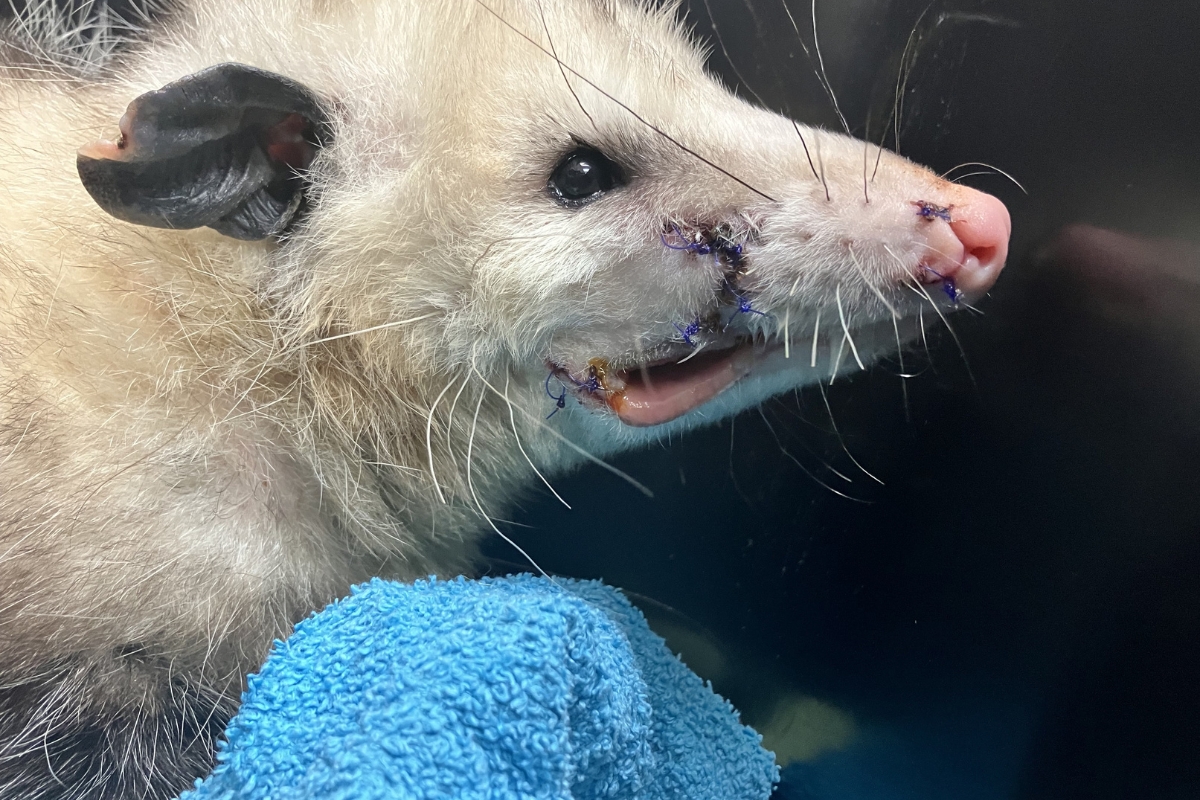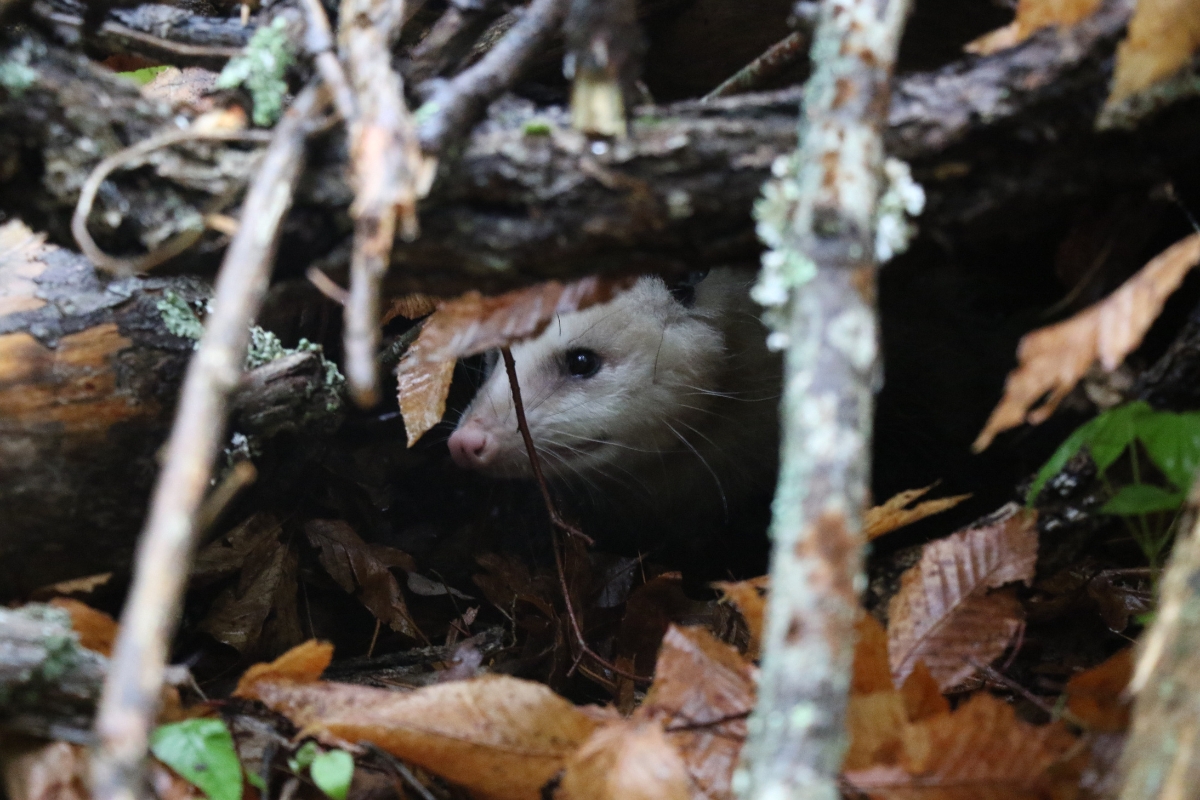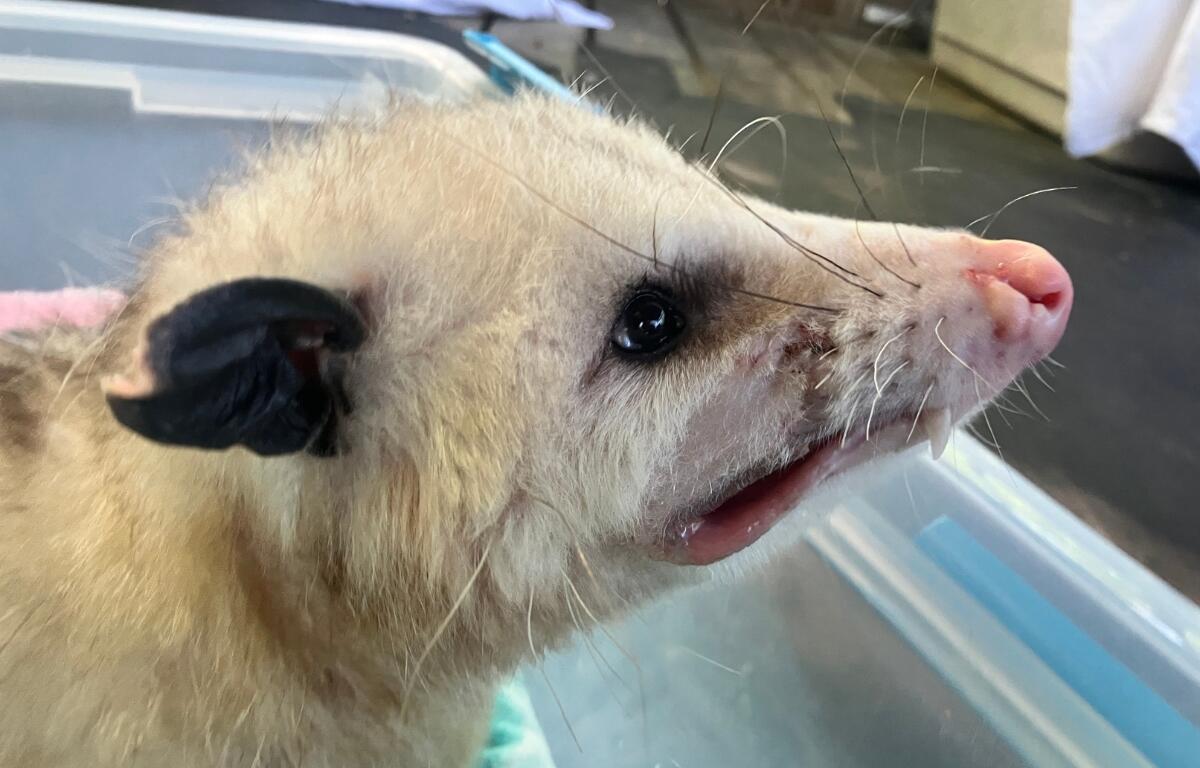ROCKBRIDGE COUNTY, VA (Wildlife Center of Virginia) — On April 18, the Wildlife Center admitted a Virginia Opossum that had been found injured on the side of the road in Rockbridge County. The opossum was initially brought to the Lexington Animal Hospital before being transferred to the Center for specialized care.
On admission, the opossum’s injury was immediately apparent: he had a massive, deep wound on the right side of his face, extending into his mouth and exposing the bone of his upper jaw. The traumatic injury was likely sustained during a vehicle collision. Bloodwork also revealed subclinical levels of lead in his system, meaning the opossum had ingested lead at some point, which over time can cause neurological impairment.
The veterinary team immediately started surgery to clean the wound and begin the painstaking process of suturing the opossum’s face back together.

“The wound was one of the most severe I’ve seen. It encompassed about one-third of his face,” said Dr. Olivia, the Center’s Veterinary Research Fellow. “He was showing fairly significant neurologic signs on admission due to head trauma, so surgery was a bit risky, but it was necessary due to the extent of the wound. Fortunately, the surgery went very smoothly.”
Once surgery was completed, Dr. Olivia started the opossum on antibiotics, anti-inflammatories, and pain medication, as well as chelation therapy to remove the lead. The opossum was placed on strict crate rest and given a soft diet to protect his injured jaw.
Over the next two weeks, the opossum made steady and significant progress, with no complications developing at the surgery site. By May 1, the opossum’s wounds had fully healed – a dramatic difference since admission. With follow-up blood work indicating that the opossum was also lead-free, he was officially cleared for release. Dr. Olivia released the opossum in a remote area close to where he was initially rescued, but far from a roadway.

Sadly, millions of opossums are hit and killed by vehicles every year. Opossums are a nomadic species, traveling over a wide area in search of food and shelter; they frequently need to cross roads in order to get from one part of their habitat to another. To help reduce these incidents, the Center encourages drivers to stay alert, especially during dawn and dusk when many animals are most active. Center staff also encourage public support for legislation that incorporates wildlife crossings into infrastructure planning.
To support the Wildlife Center of Virginia and help provide veterinary care for wildlife like this opossum, you can make a donation and subscribe to their newsletter.



